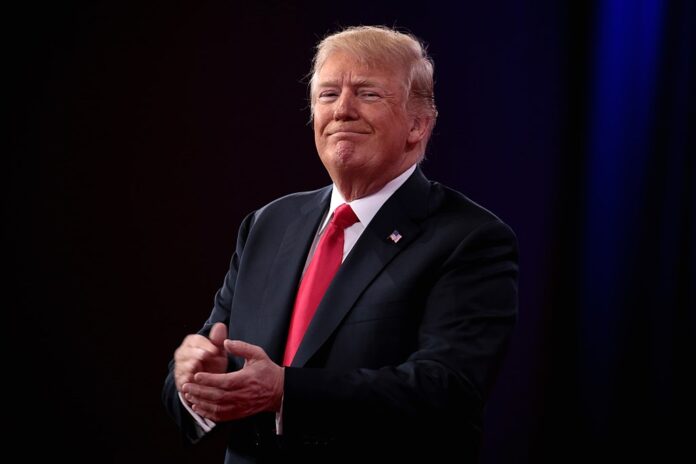Small manufacturers brace for impact as former US President Trump’s proposed tariffs threaten their export-driven success
In Cangzhou, Hebei, the future of small manufacturers hangs in the balance as former US President Donald Trump’s potential return to power looms large. Li Wei, who took the reins of Hebei Yiyue Glass Products from his father in 2020, has seen his company flourish, exporting finished glass products globally. However, as Trump campaigns for re-election with promises of tariffs exceeding 60 percent on Chinese imports, anxiety permeates the factory’s halls.
Li’s strategic decisions have transformed his business model. By relocating the factory to a site with improved logistics and greater capacity, he expanded operations and shifted focus from local sales to international markets. Today, his export business sells cups, jars, and pots across the globe, with the United States representing a staggering 80 percent of sales. The surge in demand has enabled Li to double his workforce, bringing much-needed employment to the region.
Yet, this success could be short-lived. Trump’s tariff proposals have left Li and many of his counterparts in distress. They fear that the punitive measures could stifle their businesses, which have flourished primarily due to favourable trade relations with the US. The impending threat of significant tariffs raises concerns about the sustainability of their operations and the livelihoods of their employees.
Embed from Getty ImagesLi isn’t alone in his worries. Numerous small manufacturers throughout China are feeling the pinch of uncertainty as they monitor the political climate in the US. The spectre of tariffs brings back memories of previous trade disputes that caused upheaval in export markets and increased operational costs.
While the factory floor buzzes with activity, the air is thick with apprehension. Workers, many of whom are newly employed thanks to Li’s expansion efforts, are left wondering about their job security. Will they continue to produce goods for a market that may soon become prohibitively expensive for American consumers?
As the election date approaches, manufacturers like Li are rallying for a clear understanding of what the future may hold. They advocate for stable trade relations that have allowed them to thrive in the global marketplace. A significant portion of their output relies on US consumers, and any shifts in tariffs could drastically alter demand.
In the broader context, Trump’s tariff plans reflect a growing trend of protectionism that has worried many in the global economy. Small manufacturers in China, once buoyed by export growth, now find themselves grappling with the potential for increased costs and dwindling sales. The stakes have never been higher as they navigate these tumultuous waters.
As they wait for the election results, the fate of Li’s business—and that of many others—hangs precariously in the balance. The coming days will be crucial in determining whether their hopes for a thriving export market will endure or whether they will be forced to pivot yet again in a rapidly changing economic landscape.
